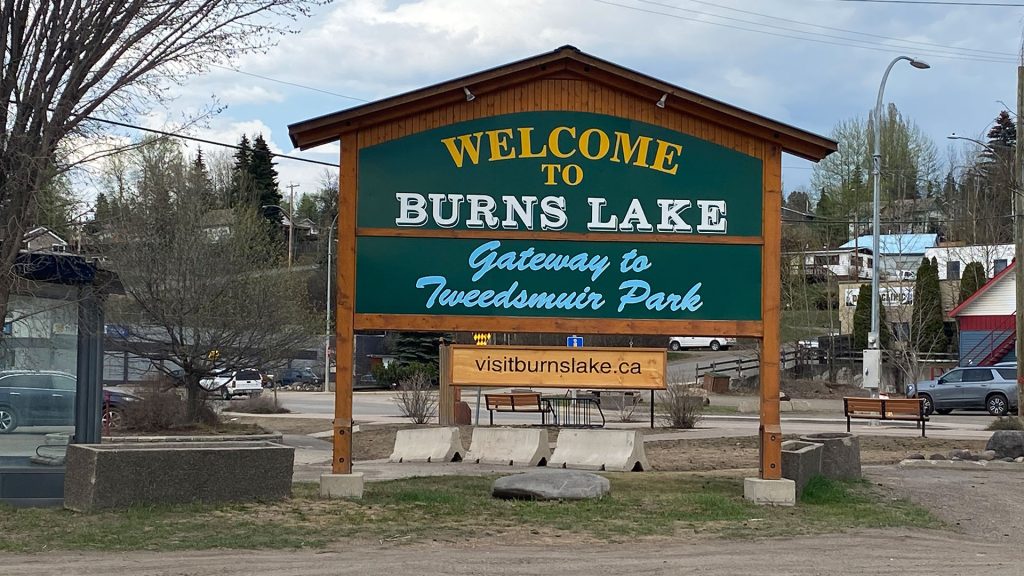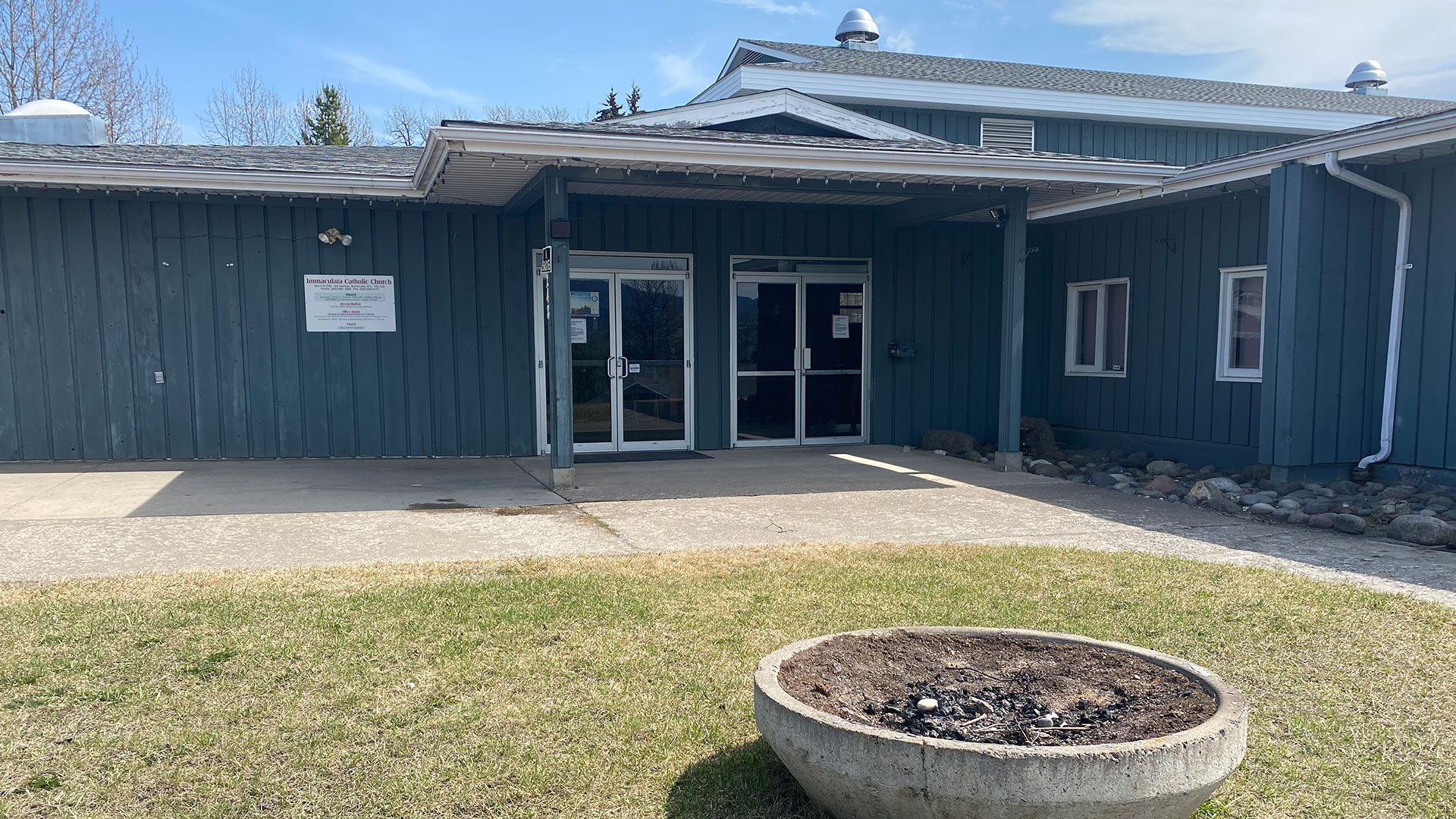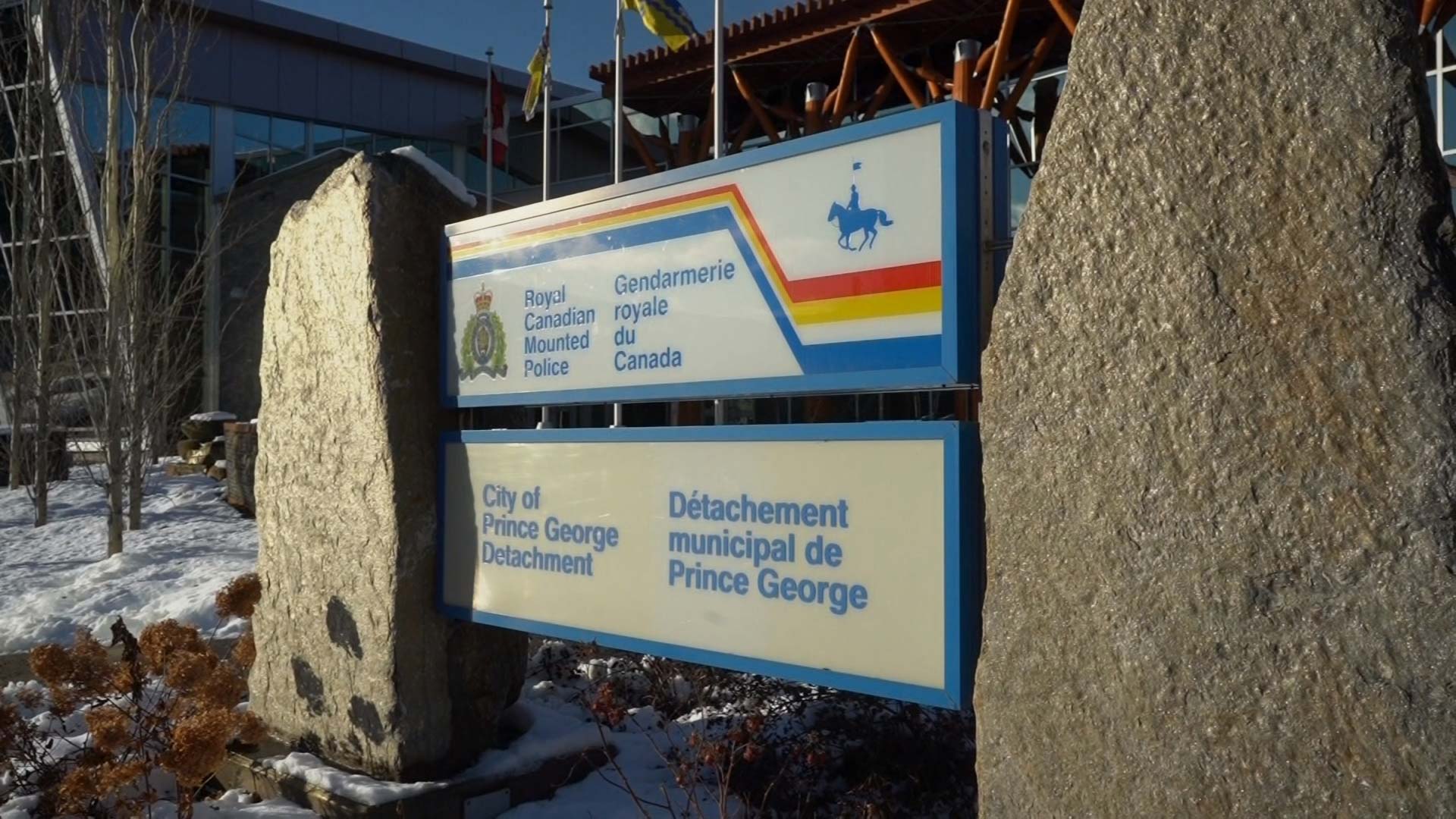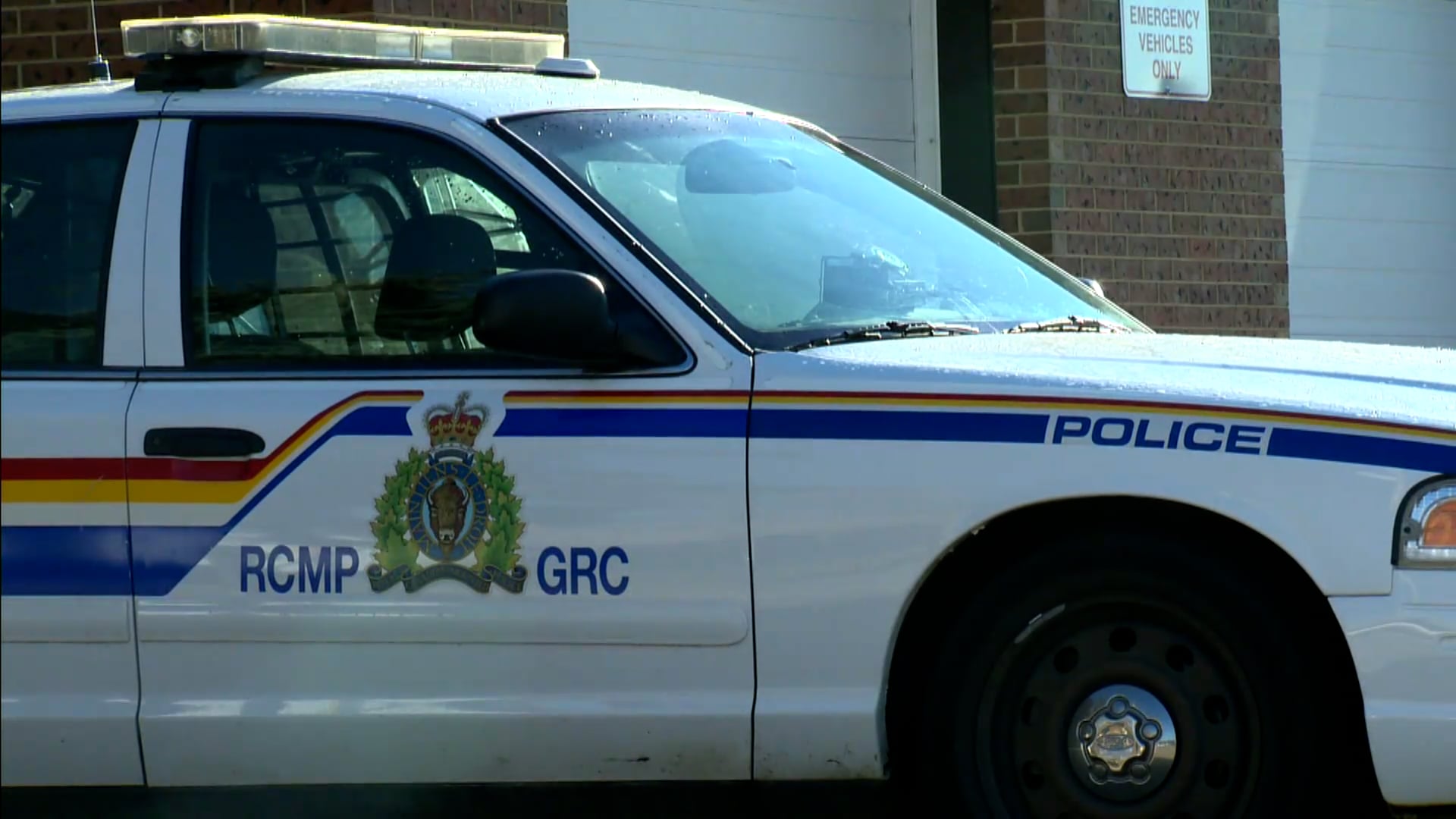
A large wooden sign welcomes visitors to Burns Lake in northern B.C. Photo: Kathleen Martens/APTN News
A Mountie learned first-hand how much First Nations people dislike the RCMP while investigating allegations of abuse at an Indian day school 50 years ago, a Canadian Human Rights Tribunal heard Wednesday.
Sgt. Quinton Mackie said he couldn’t wear his uniform or drive a police cruiser while interviewing survivors of Immaculata Catholic Elementary School, a day school in the northern British Columbia community of Burns Lake.
“They didn’t want an RCMP vehicle in front of their house,” Mackie told the survivors’ lawyer, Karen Bellehumeur.
“I can’t speak to the history of them [the survivors],” he noted during an earlier interview with professional standards that Bellehumeur cited during her cross examination, “is it a lack of trust or fear of the RCMP?”
The national police force was used by the federal government to help remove Indigenous [First Nations, Inuit and Métis] children from their families and force them into Indian residential and day schools when the assimilationist system began more than a century ago.

The RCMP are still viewed as a tool of colonial politicians by many Indigenous peoples, and the force has admitted to the presence of “systemic racism” within its ranks.
Mackie, a member of the force for 20 years, was testifying during his second day as a witness at the Tribunal hearing that began May 1 in Burns Lake and, after several weeks break, is continuing online.
A representative group of six survivors filed a complaint with the Canadian Human Rights Commission in 2020 accusing the RCMP of discriminating against them while investigating their 2012 allegations that a teacher physically abused them and sexually abused one female student.
They noted the relationship between Indigenous peoples and the force has long been strained.
The teacher, known by the initials A.B. during the hearing, worked in area schools in the 1960s and ‘70s. His name is protected by a publication ban during the 10-week hearing.

A representative for the survivors later filed a complaint about Mackie’s handling of the case. The professional standards division found the complaint to be unfounded.
Mackie, who was a constable at the time and is now a sergeant, was the lead investigator and concluded there was not enough evidence to support criminal charges against the teacher.
But the survivors felt the Mounties had tunnel vision and doubted their experiences while refusing to believe the teacher was abusive.
Mackie said he was unable to interview several survivors who were classmates and that left a hole in his case.
He said he wore plain clothes and drove an unmarked police vehicle from his detachment about two-and-a-half hours east in Prince George to Burns Lake and Fort Babine First Nations in 2012 and 2013, but many survivors still refused.

He described this as frustrating in the professional standards interview conducted by Sgt. Nicole Noonan that Bellehumeur revisited.
“I think it was [a male survivor], he wouldn’t return our calls then he turned around and said that the RCMP didn’t do anything,” Mackie said. “People wouldn’t talk to us and then said we didn’t do anything to help them.”
Would Mackie know why survivors acted this way, asked Bellehumeur.
“This has nothing to do with ethnicity, race, creed, colour,” he replied. “In order to get the story, I need to hear it from the victim…I have to talk to the Indigenous victim themselves.”
Mackie said the stand he took during the investigation requiring alleged Indigenous victims of historical abuse to come forward to police directly may “possibly” be discriminatory and create a barrier for Indigenous people.
‘Their own views’
“Everyone has their own views and their own interaction positive or negative with RCMP,” he said, “It could possibly be [discriminatory], but it is individual to individual.”
Mackie noted he has Indigenous heritage – Métis, in fact, from Saskatchewan. He said he sometimes reveals his ancestry “to build rapport” with witnesses and suspects.
“In Whitehorse where I worked, I had good rapport with the revolving door Natives,” he said.
“I use it more as a bridge…I look White but I’m Indigenous. I use Cree words every now and then and people understand them.”
Bellehumeur asked Mackie to explain the term ‘revolving door Natives.’ He said it referred to Indigenous peoples who were regularly taken into custody at the detachment for being intoxicated in a public place.
Do-over
Meanwhile, a review of Mackie’s case by two members of an Alberta RCMP unit essentially recommended a do-over of the investigation with 28 recommendations.
Mackie said the review was ordered by senior Mounties in B.C.
However, he said he left the unit conducting the investigation before all of the recommendations could be completed.









